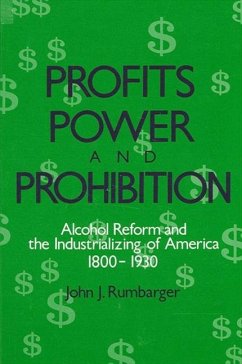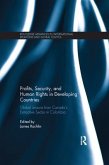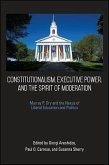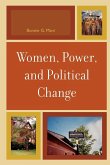This is the first comprehensive study of America's anti-liquor/anti-drug movement from its origins in the late eighteenth century through the repeal of the Eighteenth Amendment in 1933. It examines the role that capitalism played in defining and shaping this reform movement. Rumbarger challenges conventional explanations of the history of this movement and offers compelling counter-arguments to explain the movement's historical development. He successfully links the ethics of business enterprise and those of moral reform of society for the betterment of enterprise. The author reveals how readily economic power is transformed--first into social power and finally into political power in the context of a bourgeois democracy. He shows that the motivation driving this reform movement was not religiosity, but profit, and that anti-liquor capitalists viewed the "human equation" as determinant of America's prospect for creating wealth.
Hinweis: Dieser Artikel kann nur an eine deutsche Lieferadresse ausgeliefert werden.
Hinweis: Dieser Artikel kann nur an eine deutsche Lieferadresse ausgeliefert werden.








